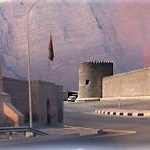The Sultanate of Oman is noted for its strong fundamentals in the national healthcare system.
In fact, the country’s healthcare sector has witnessed commendable growth over the last few decades. While the government has a strong presence in the sector, making available advanced health solutions and patient care services to people, it has always welcomed and encouraged the private healthcare providers to contribute to transforming Oman into a regional healthcare hub.
When His Majesty became the Sultan of Oman, the country had just two hospitals. Over the last 45 years, under His Majesty the Sultan’s visionary leadership, Oman’s health sector registered amazing growth. The government policy focused heavily on ensuring access to basic universal healthcare for all Omani citizens, and subsidised health services for expatriates.
Today, Oman has nearly 70 quality hospitals, with over 6,400 beds, offering a range of specialised and general patient care services across the country. Its healthcare system greatly benefited from foreign medical expertise which in turn helped improve the skills of the country’s homegrown medical professionals.
Providing universal healthcare to a mixed population of Omanis and expatriates has been quite a challenge, considering the sultanate’s unique topographical features and population distribution pattern. But today, even remote hamlets inhabited by a few have access to healthcare.
More than 80 per cent of the sultanate’s total health expenditure is borne by the Ministry of Health, and the budgetary allocation for the sector stands at RO1.3bn. The healthcare sector is poised to witness exciting developments which include mega health projects such as the US$1.5bn Sultan Qaboos Medical City (SQMC) in Muscat comprising of five hospitals, and other medical facilities; and the US$1bn integrated medical tourism project in Salalah called the International Medical City (IMC) consisting of a 530-bed tertiary specialty care hospital, a research and development (R&D) complex, organ transplant centers, and a healthcare resort. There are other projects in the pipeline including the RO72mn integrated healthcare complex to come up in Seeb, which will have a 225-bed tertiary care hospital, 120-key three-star hotel apartments, and 300 residential apartments among others.
The new hospitals, medical centers, and clinics in the pipeline are expected to play a major role in achieving Oman’s Health Vision 2050, a long-term strategy issued in 2014 that aims to support the government’s goal of providing an equitable and responsive healthcare system, which in turn will create a productive population.
Against this backdrop, the entry of Burjeel Hospital into Oman heralds a totally new dimension to private premium healthcare in the Sultanate. Burjeel Hospital started recently its operations in Oman in the commercial hub of Al Khuwayr (Muscat) with Christopher Evans, a veteran in the field of healthcare management, as the CEO.
Revealing his strategic healthcare vision for Oman, he said, “Oman has fared spectacularly in the healthcare sector under His Majesty Sultan Qaboos bin Said’s reign. In 1970, the life expectancy of Omani citizens was only 49.3 years, and His Majesty the Sultan directed the government to prioritise providing free, universal primary care. Now, in less than 50 years, this average life expectancy has risen to more than 76 years and the objective of free, universal primary care for everyone has been fully realized. Significantly, as much as 95 per cent of the Omani population lies within five miles of a medical center.
“Also, when you add the network of community hospitals, tertiary hospitals, and the excellent specialist referral and medical teaching facilities of the Royal and Sultan Qaboos University Hospitals, you get a clear view of the massive and truly impressive developments in the Omani healthcare sector. Certainly, such a growth could easily be the envy of many other countries in the world. All this due to His Majesty the Sultan’s continued commitment to providing the country with healthcare services that match the very best of international standards. These achievements are unquestionably outstanding indeed.”
Burjeel Hospital has designed a unique, strategic healthcare planning model that strongly supports the development of the Omani healthcare industry. Evans says, “I must admit that I am not comfortable with the label Omani ‘healthcare industry’, which suggests a mechanical production line. This is certainly not the model of healthcare I would wish to endorse in the sultanate.”
He proposes a healthcare model that encourages inter-dependence of public and private healthcare sectors, where the proposed healthcare developments of the private sector are screened and approved by the government before commencement to ensure compatibility with the public sector provision. Further, operational activities of the private sector must be regulated against the MoH’s statutory requirements.
The model recommends securing and maintaining specified international accreditation specifications, such as those referred by the Joint Commission International (JCI) Accreditation. The model envisages a self-sufficient structure for the private sector that does not rely on public sector resources at all, but at the same time, allows the public sector to access key resources of the private sector for the benefit of Oman residents.
“There is a great opportunity for major international joint ventures in healthcare in Oman, not just in the private sector but in the public sector as well,” he added.
In addition to world-class medical care, Burjeel Hospital offers 7-star hospitality experience to meet the demands and expectations of today’s locals and residents of Oman.
“Burjeel Hospital’s layout planning facilitates convenient adjacencies in clinical departments; smooth guest flows for medical efficiency, treatment and privacy; positioning of sophisticated diagnostic and medical facilities, together with the installation of robust and tested communication and IT infrastructure systems. In fact, Burjeel Hospital has set a new benchmark in Oman in terms of the standard of private healthcare that are at par with or even more than renowned international hospitals,” Evans continued.
Commenting on how well Burjeel’s vision gel with Oman government’s vision plan to ensure better health for the public, Evans notes, “Burjeel’s determination to bring the best healthcare in Oman strongly supports the government’s vision in all shapes and forms.”
On the strategic role played by private medical providers in the sultanate, Evans believes that Oman faces an increasing demand for healthcare, both for preventative and interventional services. “Like every other country, the cost of providing healthcare continues to rise significantly, as new diagnostic equipment, treatment protocols, medications, hospitals, other treatment facilities, and increasingly skilled staff are needed.
“Allowing a regulated private healthcare sector to function alongside the public sector can significantly contribute to addressing the healthcare needs of both local and the expatriate population. This will also offer Omani nationals the choice to pay – by themselves or through private medical insurance – for their medical care, thereby substantially reducing the public sector’s healthcare burden.”






